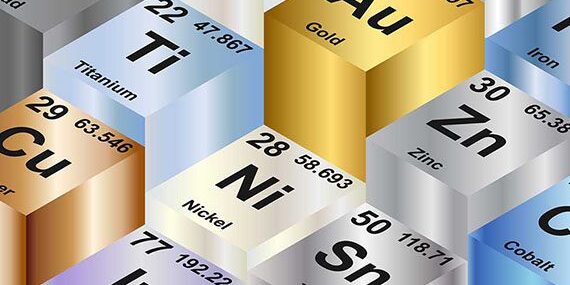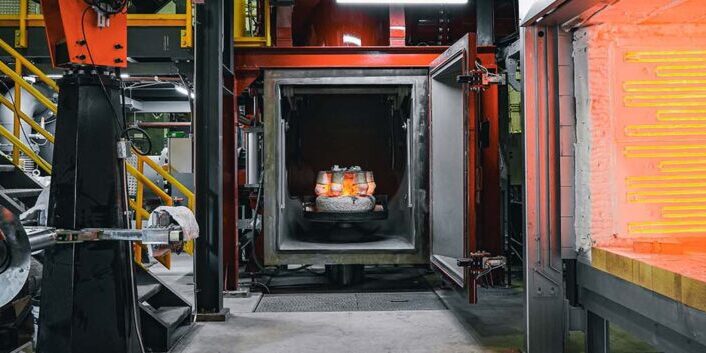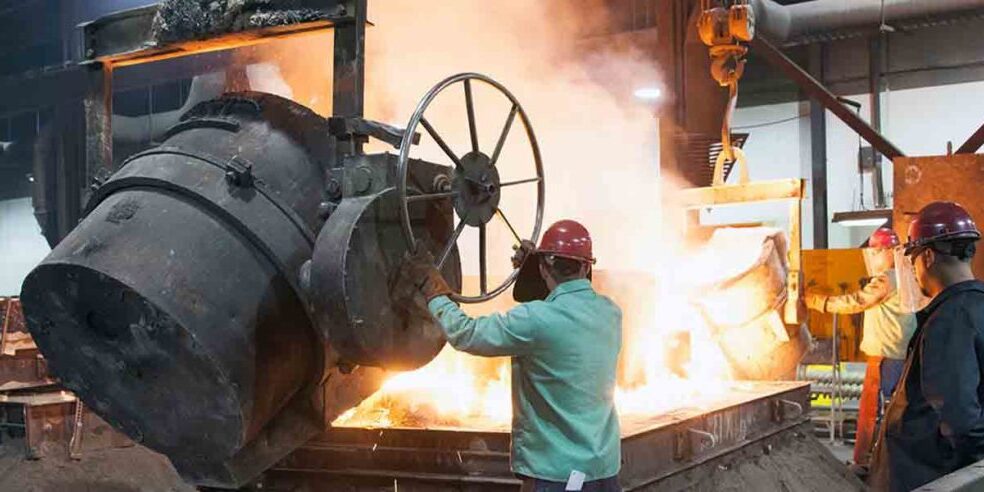Blog Ferrous vs. Non-Ferrous Metals
By: Dave Olsen
From skyscrapers to naval propulsion systems, from automotive parts to petrochemical furnace tubes, there is no shortage of real-world applications for metal. Metals come in a wide range of structures, properties, and applications but are commonly organized into two categories: ferrous metals and non-ferrous metals. Below we explain the definitions, common types, differences, and popular applications of both ferrous metals and non-ferrous metals.
Ferrous Metals:
A ferrous metal contains mostly iron. Ferrous metals are common and make up the bulk of castings in the metal castings industry. Typically, ferrous metals are stronger than non-ferrous metals and heat treatment can further improve their material properties.
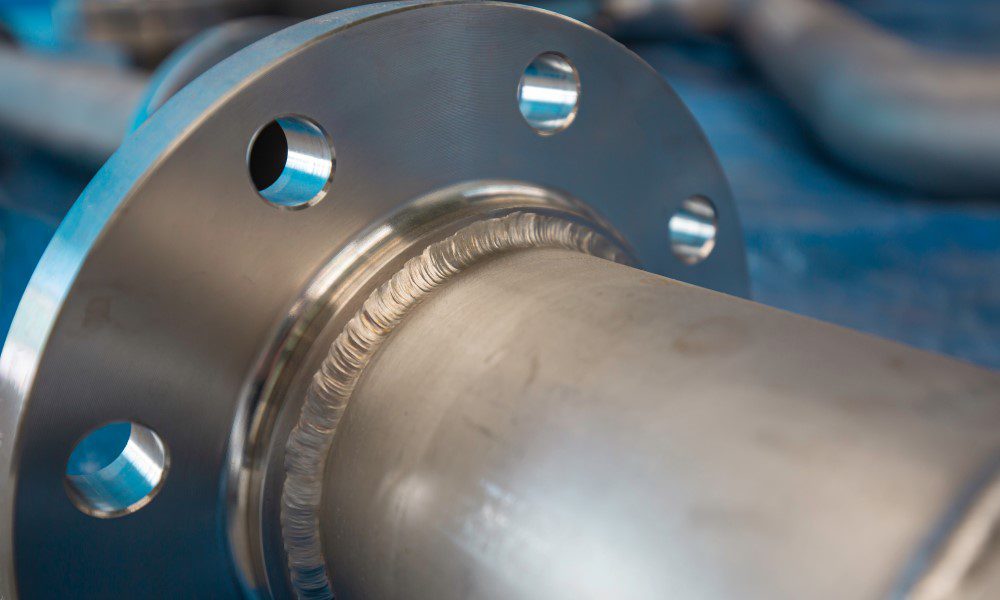
Steel is one of the most popular ferrous metals. Steel and stainless steel are similar, but stainless steel is made up of at least 10.5% chromium. This additional chromium increases the corrosion resistance of stainless steel. While steel will rust and corrode, stainless steel will not. To learn more about the unique properties and uses of non-ferrous metals visit “What Are Ferrous Alloys?”. This article in particular breaks down differences between numerous stainless steels, including Ferritic, Martensitic, Austenitic, Super Austenitic, Duplex, and Age Hardened.
Common Ferrous Metals:
Common ferrous metals include:
- Steel
- Stainless Steel
- Wrought Iron
- Cast Iron
- Low, Medium, and High Carbon Steel
Non-Ferrous Metals:
A non-ferrous metal is a metal that does not have iron. Except for iron, all pure metals are non-ferrous. Metal technology has continually developed throughout history, but natural non-ferrous metals still play a vital role for critical, real-world applications such as defense, process equipment, and renewable energy.
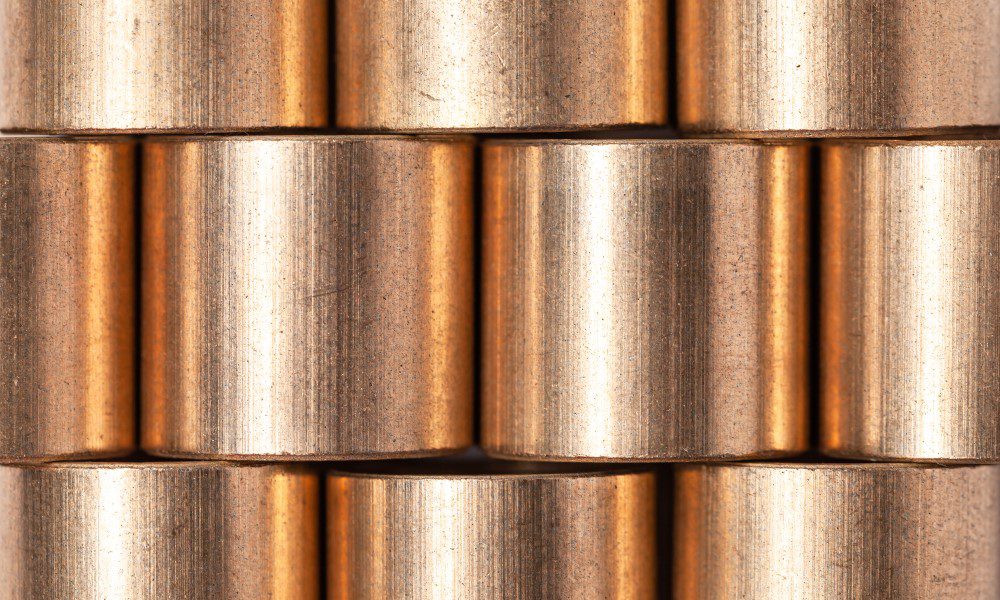
A prominent non-ferrous material is copper-based alloys – bronze and brass. Brass is a copper-based alloy that has zinc as a principal element, while bronze does not have zinc or nickel as the principal element. More on Bronzes and non-ferrous metals can be found here: What Is Non-Ferrous Metal?
Common Non-Ferrous Metals:
Key Differences: Ferrous vs. Non-Ferrous Metals
Magnetism
Iron is magnetic, so ferrous metals have magnetic properties. Non-ferrous metals do not have magnetic properties. Iron has magnetic properties due to its electrons becoming easily aligned to a magnetic field. This property allows ferrous metals to be ideal for electrical projects – a prime example is induction heating.
Corrosion Resistance
Ferrous metals are often not ideal for applications where corrosion is a concern. Iron reacts with water to form a layer called hydrated iron (III) oxide, commonly known as rust. One notable exception to ferrous metals is stainless steel. This material was designed, among other things, to provide corrosion resistance.
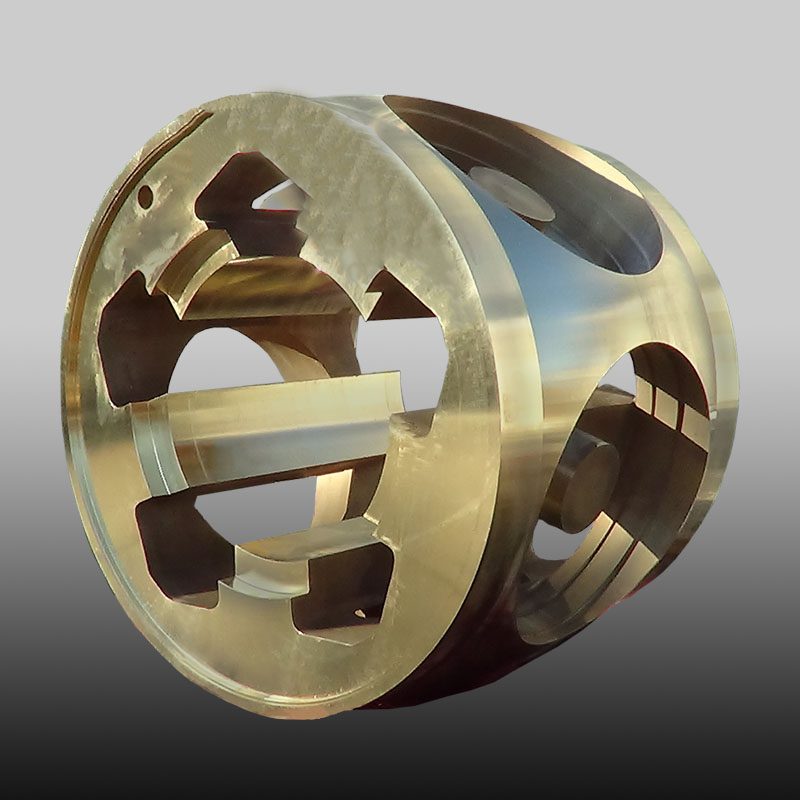
Non-ferrous metals form oxide layers that function as barriers to water. These layers provide a high degree of corrosion resistance. This is a major reason copper pipping has traditionally been used for water pipes in homes, for example.
Strength
Ferrous metals are typically stronger than non-ferrous metals. Steel is a prime example of one of the strongest metals. Combine that with its low cost and steel is a natural choice for building structures and other projects requiring high degrees of tensile strength. Titanium is stronger than other non-ferrous metals, but due to its high price, it typically makes for a poor selection for large projects like building structures.
Common Applications
Ferrous Metals Common Applications
- Shaft sleeves
- Heat exchangers
- Pressure vessels
- Calciners
- Centrifuges
- Hydraulic cylinders
- Petrochemical components
- Chemical & food processing equipment
- Pump & valve components
- Pulp & paper suction rolls
- Turbine engine components
- Medical devices
- Forming rolls
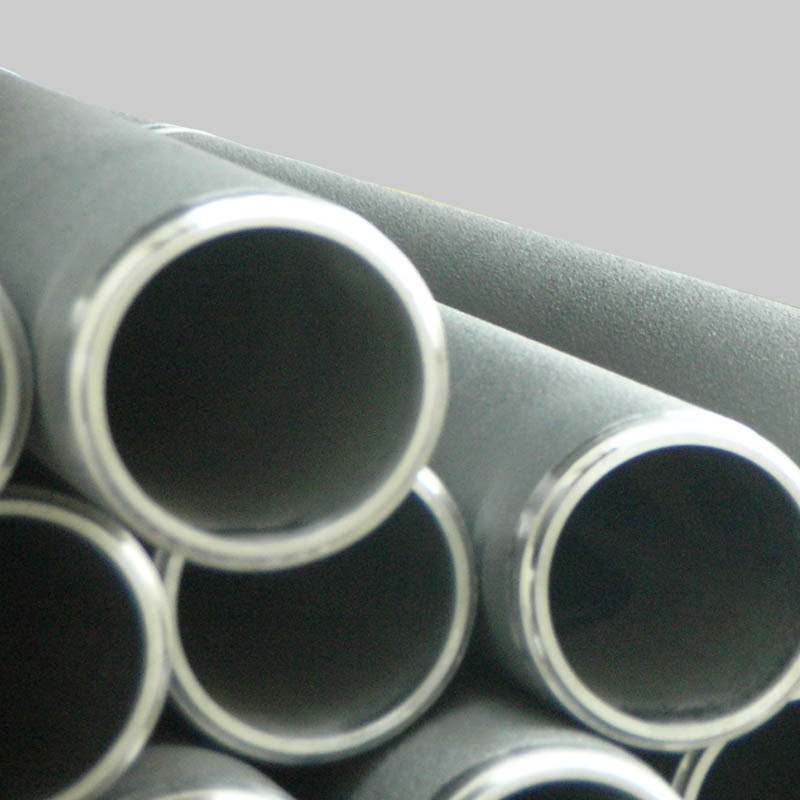
Non-Ferrous Metals Common Applications
Ferrous vs. Non-Ferrous Metals: Conclusions
The differences between ferrous and non-ferrous metals are important, but that does not mean that the choice is clear for every project. It is critical to understand the various chemistries and how they will react to their application environment . Both ferrous and non-ferrous metals are vital to countless critical applications. Your Metal Experts at MetalTek are here to help with your project and identify the appropriate alloy for your specific application.

